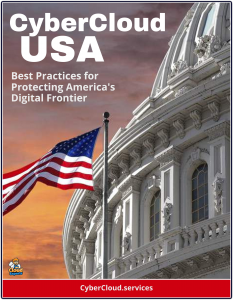Making America Safe Again Through Cyber Defense – The Growing Importance of Cybersecurity Amid Tensions with Iran and Russia
Recent geopolitical developments, including sanctions, military posturing, and diplomatic frictions, have heightened the likelihood of retaliatory cyberattacks.
 In an era where geopolitical tensions are escalating, particularly with nations like Iran and Russia, the importance of cybersecurity has never been more critical.
In an era where geopolitical tensions are escalating, particularly with nations like Iran and Russia, the importance of cybersecurity has never been more critical.
The digital landscape has become a battleground where state-sponsored cyberattacks can disrupt economies, compromise national security, and erode public trust.
As conflicts with Iran and Russia intensify, the risks of sophisticated cyberattacks from these nations underscore the urgent need for robust cybersecurity measures across governments, businesses, and individuals.
Speaking at the RSA Conference Kristi Noem, Secretary of Homeland Security, U.S. Department of Homeland Security unveiled her vision for the future of America’s cyber defense, discussing how decisive action today will make the nation more cybersecure for future generations.
The Evolving Threat Landscape
Iran and Russia have long been recognized as significant players in the cyber domain, leveraging their capabilities to advance strategic objectives. Both nations have demonstrated a willingness to deploy cyberattacks as tools of hybrid warfare, targeting critical infrastructure, government institutions, and private enterprises.
Recent geopolitical developments, including sanctions, military posturing, and diplomatic frictions, have heightened the likelihood of retaliatory cyberattacks.
Iran, for instance, has been linked to numerous cyber operations targeting Western nations and their allies. The U.S. Cybersecurity and Infrastructure Security Agency (CISA) has repeatedly warned of Iran’s growing sophistication in cyberattacks, including ransomware campaigns and data breaches aimed at critical sectors like energy, healthcare, and finance.
Similarly, Russia’s cyber arsenal, bolstered by groups like APT28 (Fancy Bear) and APT29 (Cozy Bear), has been implicated in high-profile attacks, such as the 2020 SolarWinds breach, which compromised multiple U.S. government agencies and private companies. These incidents highlight the ability of state-sponsored actors to exploit vulnerabilities on a global scale.
Why Cybersecurity Matters Now
The current geopolitical climate amplifies the risks posed by Iran and Russia. Both nations have the motive and means to launch cyberattacks as a response to economic sanctions, military actions, or diplomatic disputes.
Unlike traditional warfare, cyberattacks are low-cost, difficult to attribute definitively, and can cause widespread disruption without physical casualties. This makes them an attractive option for nations seeking to project power or retaliate without escalating to open conflict.
Critical Infrastructure at Risk: Iran and Russia have shown a particular interest in targeting critical infrastructure, such as power grids, water systems, and transportation networks. A successful attack could paralyze entire regions, as seen in the 2015 and 2016 cyberattacks on Ukraine’s power grid, widely attributed to Russia. The ripple effects of such disruptions could destabilize economies and undermine public safety.
Economic and Data Security: Both nations have engaged in cyber espionage to steal intellectual property, sensitive government data, and corporate secrets. Iran’s targeting of U.S. and European financial institutions and Russia’s breaches of tech companies illustrate the economic stakes. Businesses face not only financial losses but also reputational damage and regulatory penalties in the wake of data breaches.
Disinformation and Social Manipulation: Beyond technical attacks, Russia, in particular, has mastered the art of cyber-enabled disinformation campaigns. By spreading false narratives through hacked accounts or social media platforms, state actors can sow division and influence public opinion, as seen during the 2016 U.S. presidential election. Iran has also increasingly adopted these tactics to amplify its regional influence.
The Case for Strengthening Cybersecurity
The rising threat of cyberattacks from Iran and Russia demands a proactive and multi-faceted approach to cybersecurity. Governments, organizations, and individuals must prioritize resilience in the face of evolving risks.
Government Action: National governments must invest in cyber defense capabilities, including threat intelligence sharing, real-time monitoring, and rapid response frameworks. International cooperation is also critical, as cyberattacks often cross borders. Initiatives like the U.S.’s CISA and the EU’s Cybersecurity Strategy are steps in the right direction, but more needs to be done to counter state-sponsored threats.
Private Sector Responsibility: Businesses, particularly those in critical sectors, must adopt robust cybersecurity frameworks. This includes regular vulnerability assessments, employee training, and the adoption of zero-trust architectures. The private sector’s role is especially vital given that 80% of critical infrastructure in the U.S. is privately owned.
Individual Vigilance: On a personal level, individuals must practice cyber hygiene—using strong passwords, enabling two-factor authentication, and staying informed about phishing scams. Public awareness campaigns can help bridge the knowledge gap and reduce the success rate of social engineering attacks.
Looking Ahead
The stakes of cybersecurity have never been higher, particularly in the context of tensions with Iran and Russia. As these nations continue to refine their cyber capabilities, the potential for disruption grows.
The 2021 Colonial Pipeline ransomware attack, linked to Russian cybercriminals, served as a wake-up call, demonstrating how a single breach can disrupt fuel supplies and spark panic. Similarly, Iran’s reported cyberattacks on Israeli infrastructure highlight the real-world consequences of digital vulnerabilities.
To mitigate these risks, a collective effort is required. Governments must lead with policy and investment, businesses must prioritize security as a core function, and individuals must stay vigilant. In a world where conflicts are increasingly fought in cyberspace, robust cybersecurity is not just a technical necessity—it’s a cornerstone of national and global stability.
As tensions with Iran and Russia persist, the message is clear: cybersecurity is no longer optional. It is a critical defense against an invisible but ever-present threat. By acting now, we can safeguard our digital infrastructure and ensure resilience in an uncertain future.



